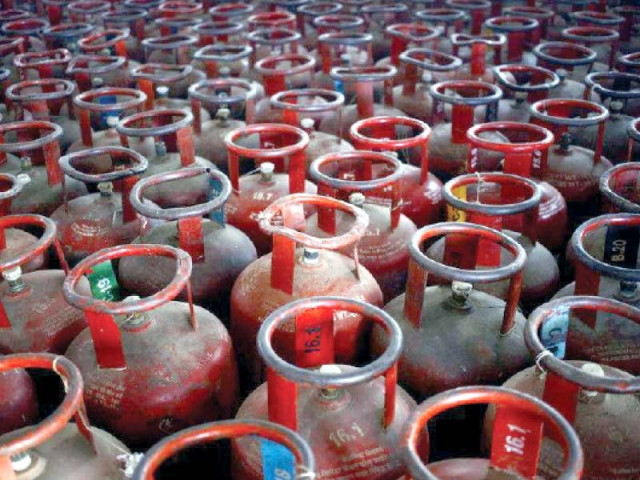Incentive package for LPG imports in the offing
Importers likely to reap big benefit; domestic producers reject proposals

The government is set to approve an incentive package for the import of liquefied petroleum gas (LPG) in an apparent move to boost supplies.
However, importers may reap major benefits due to favourable policies like tax exemption. The common practice has been to offer incentives to domestic producers in a bid to enhance production but this time the case is contrary to that as the government is going to endorse several incentives for LPG imports.
LPG supply is expected to improve in the wake of current shipment orders and proposed exemption from withholding tax, which is set to be approved in the current month.
LPG importers had waited for announcement of the new policy and a new contract price by Saudi Aramco, which increased the rate by $79 per ton for LPG supply to the market.
The new contract price has been set at $536 per ton for January but most of the purchases by the importers were finalised when the price was at $457 per ton.
The Oil and Gas Regulatory Authority (Ogra) has announced LPG prices for the domestic market for January 2021 based on the Saudi Aramco contract price. Because of that, according to industry players, the importers will get a windfall of around Rs400 million.
At present, 5.5% withholding tax is charged on the import of LPG, which is likely to be withdrawn in the new policy. About two years ago, LPG imports were exempted from regulatory duty and enjoyed a preferential sales tax under which the tax was slashed from 17% to 10%.
According to industry players, the incentives offered over the past two years enhanced profits of importers by close to Rs10 billion without passing any benefit on to consumers.
Ogra sources said that the domestic LPG producers and other stakeholders did not endorse the new policy proposals as many of the agreed points during consultations with the policy committee were ignored.
In this regard, the management of a large refinery, in which the government of Pakistan has a big shareholding, has written a letter to the Planning Commission.
According to officials, the refinery management pointed out that the suggestion in the draft policy that the petroleum development levy (PDL) be imposed on LPG imports from Iran via land route while exempting imports through the sea route was irrational.
For a level playing field, the same levy should be imposed on the sea route as well, it said. Domestic producers already pay PDL at the rate of Rs4,669 per ton.
Industry sources argued that the PDL proposal seemed heavily biased in favour of big players, who imported LPG via sea, and eliminated small players, who made imports through land.
The argument that imports through land are cheaper on which PDL should be paid also contradicts the overall policy directive that calls for supply of cheaper fuel to the consumers.
Sources said that some members of the Petroleum Exploration and Production Companies Association (PEPCA) were planning to file an application with the anti-corruption watchdog and also approach the prime minister in a bid to request him to constitute a commission for probe into attempts at giving undue benefit to the LPG importers.
Ogra sources said that the proponents of deregulation proposals failed to understand that LPG was not a commodity whose production, availability and pricing could be managed with open competition.
“Pakistan has a limited number of LPG producers and under the deregulation regime the price of local produce can be artificially manipulated by some bidders to increase margins for imports,” said a source in the Petroleum Division.
“If deregulation alone can manage pricing and availability, basic commodities like wheat would have been deregulated.”
While the government wants to deregulate the sector for purchases by LPG marketing companies, the consumer price will continue to be regulated by Ogra, which will determine the price based on Saudi Aramco contract price.
However, this will create new distortions in the market with the likelihood that most of the companies will prefer import of LPG instead of purchasing from domestic producers as import often is cheaper, particularly when most of the importers buy LPG from Iran.
Pakistan’s total LPG consumption is close to 13 million tons per annum, out of which 7.5 million tons are produced locally and the rest is imported.
Published in The Express Tribune, January 6th, 2021.
Like Business on Facebook, follow @TribuneBiz on Twitter to stay informed and join in the conversation.





1733130350-0/Untitled-design-(76)1733130350-0-208x130.webp)












COMMENTS
Comments are moderated and generally will be posted if they are on-topic and not abusive.
For more information, please see our Comments FAQ